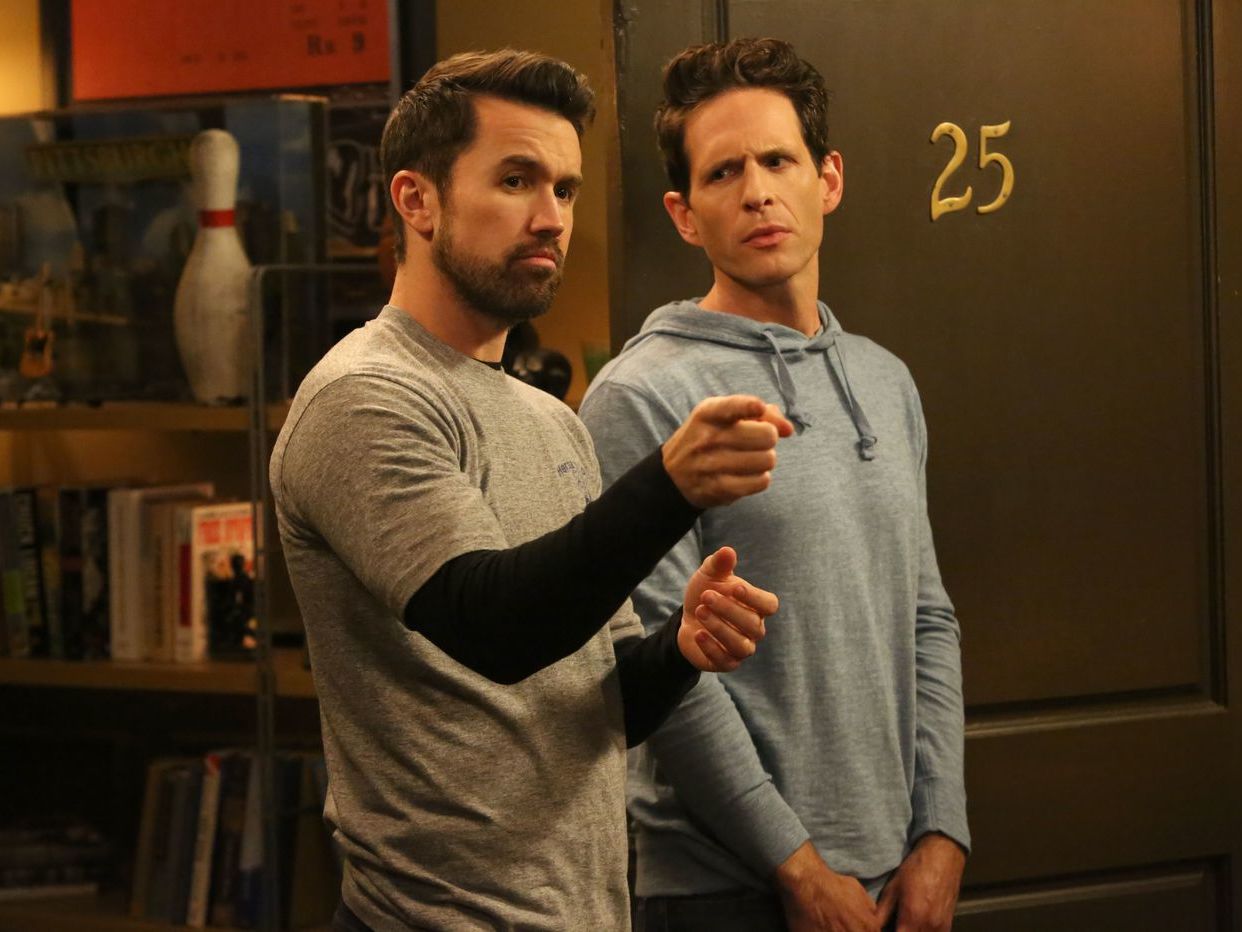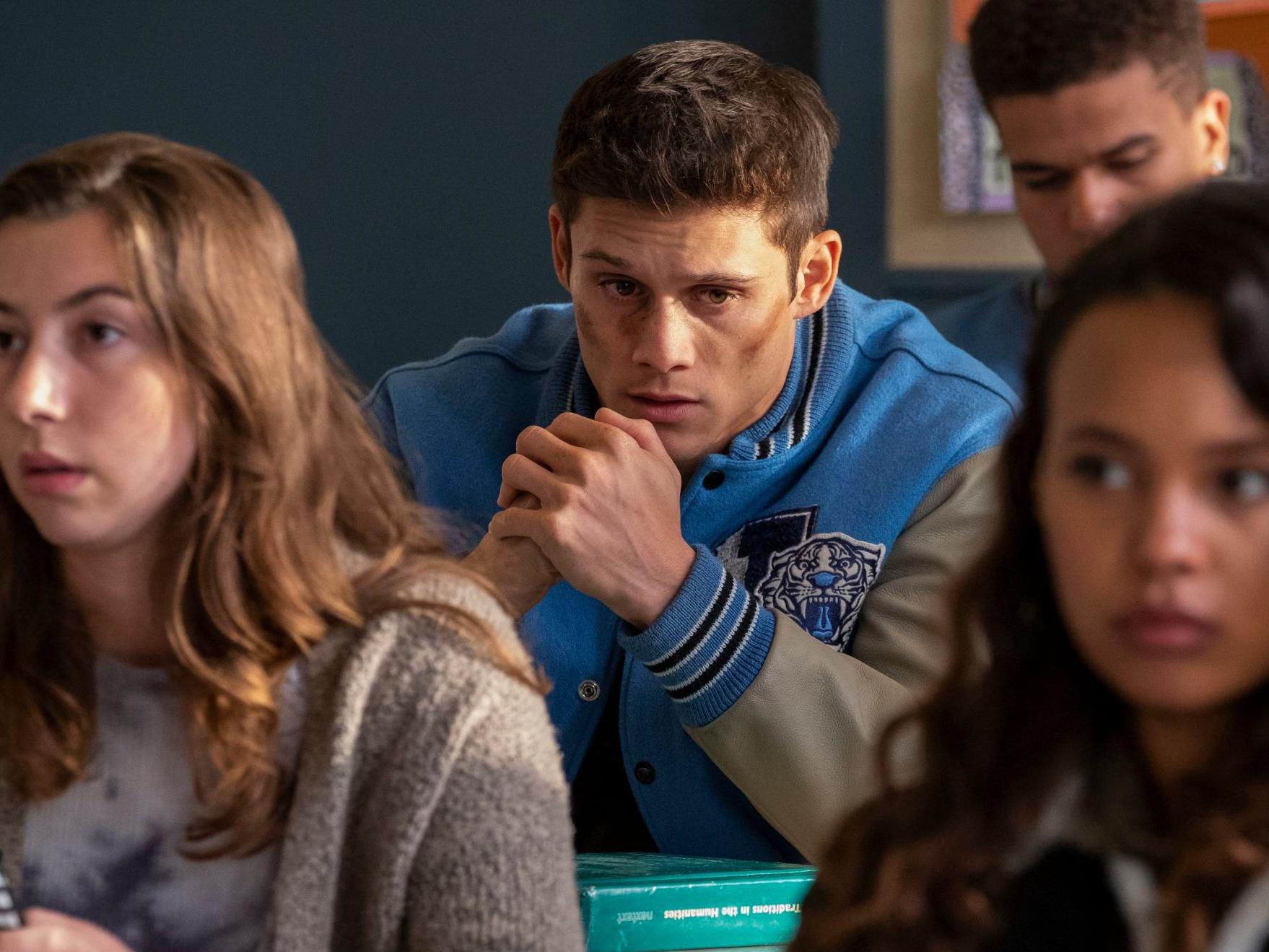Making homophobic characters gay panders to a pervasive myth
‘It’s Always Sunny in Philadelphia’ creator Rob McElhenney may think he’s exposing hypocrisy by making the ultraconservative Mac gay, but he’s perpetuating a trope that absolves the straight community of responsibility for homophobia, says Louis Staples


Your support helps us to tell the story
From reproductive rights to climate change to Big Tech, The Independent is on the ground when the story is developing. Whether it's investigating the financials of Elon Musk's pro-Trump PAC or producing our latest documentary, 'The A Word', which shines a light on the American women fighting for reproductive rights, we know how important it is to parse out the facts from the messaging.
At such a critical moment in US history, we need reporters on the ground. Your donation allows us to keep sending journalists to speak to both sides of the story.
The Independent is trusted by Americans across the entire political spectrum. And unlike many other quality news outlets, we choose not to lock Americans out of our reporting and analysis with paywalls. We believe quality journalism should be available to everyone, paid for by those who can afford it.
Your support makes all the difference.Coming out of the closet can take years, especially if you’re a fictional character on a long-running TV show. In an interview with Rolling Stone, Rob McElhenney – creator and star of dark comedy It’s Always Sunny in Philadelphia – revealed more details about his character Mac’s journey towards accepting that he is gay. This plot twist, which was finally confirmed at the end of the show’s 11th season, was unexpected because of what McElhenney describes as Mac’s “intense, ultraconservative, right-leaning” principles.
“We were looking at Mac at one point, and I was like, ‘He is such an arch-arch Catholic conservative when it suits him, and when it doesn’t, he drops that,’” he told Rolling Stone. “And most of the people I know in that camp tend to be fairly homophobic. So we began going down that road: ‘Let’s satirise that hard Christian conservative who is also intensely homophobic.’”
Making Mac gay was seemingly a natural next step. McElhenney clarified that having the most outwardly homophobic character turn out to be a self-hating gay man was intended to be a comment on “hypocrisy”, rather than be “demeaning or offensive” to the LGBT+ community.
As a gay man, I agree that this storyline is a comment on hypocrisy – I just doubt that it’s the type that McElhenney was meaning to explore. Despite his good intentions, it’s a shame that this plot panders to the well-trodden myth that most homophobes are, deep down, just closeted gay men. The hypocrisy, then, is straight people dreaming up storylines which position gay people as the primary espousers of the homophobia that they (as a demographic) created, spread and continue to maintain.
The “gay homophobe” narrative massively predates It’s Always Sunny in Philadelphia. To McElhenney’s credit, the storyline does explore other influences, such as religion, which have contributed towards Mac’s self-loathing. Yet there’s no denying that, over the years, pop culture has fostered the idea that a significant number of homophobes are gay. From teen flicks The Perks of Being a Wallflower and Cruel Intentions, to Channel 4 soap Hollyoaks and Netflix’s 13 Reasons Why, the traditional “straight bro homophobe” who turns out to be gay is a recurring trope.
In the media, too, gayness is often used to mock “alpha” men. We’ve all seen the cartoons of president Vladimir Putin and Donald Trump – two of the world’s most high-profile homophobic bullies – kissing. These jokes, which are lapped up by lots of so-called “liberals”, are predicated on the idea that the easiest way to remove power from a man, no matter how awful or dangerous he is, is to make him gay. Because, really, what could be worse than that?
The gay homophobe trope is complicated by the fact that some homophobes do turn out to be gay. Several high profile “conversion therapists” – a widely debunked form of torture which operates on the religious belief LGBT+ people can be “cured” of their sexuality or gender identity – have come out as gay in recent years. Conversion therapy affects around 80,000 American LGBT+ people a year and can have devastating consequences. Yet there is a particular glee (or thinly veiled relief) in the social media posts accompanying this news, as if a conversion therapist being gay absolves the outwardly heterosexual institutions that support the practice of responsibility.
Earlier this year, when gay magazine Attitude tweeted the news that 21 MPs (mostly older white men) had voted against introducing LGBT+ inclusive education in schools, model and activist Katie Piper replied: “50 per cent of them on Grinder [sic]”. Piper considers herself a supporter of the LGBT+ community, and I’m thankful for that, but these types of jokes – which simultaneously blame gay people for homophobia and shame people who are not out of the closet – are not the way to show allyship.

Growing up, I had my own experience with a gay homophobe, when one of the very few people who bullied me eventually came out after we left school. Yet he represents a tiny proportion of the people who have ever made me feel inferior because of my sexuality. Both in and out of the closet, many LGBT+ people are corroded by shame and self-loathing. Some of us take this out on ourselves, but a small proportion do, like It’s Always Sunny in Philadelphia’s Mac, direct their hatred towards the wider LGBT+ community.

Watch Apple TV+ free for 7 days
New subscribers only. £8.99/mo. after free trial. Plan auto-renews until cancelled

Watch Apple TV+ free for 7 days
New subscribers only. £8.99/mo. after free trial. Plan auto-renews until cancelled
I had a different route out of the closet to the boy who targeted me at school. As we move forward, we will both navigate our sexuality in different, ever-changing ways. Yet the internalised homophobia that caused him to bully me, and the hurt that his behaviour caused me, didn’t end or become less real when he came out of the closet.
For some LGBT+ people, it might be comforting to find humour in the gay homophobe trope, or to believe that homophobes are just like us – they just might not know it yet. But people don’t have to come out of the closet to be legitimately queer and the vast majority of homophobes – including people who’d kill us all if they could – are straight. In fact, they probably outnumber us.
In film and television, LGBT+ representation still leaves a lot to be desired. With a lack of LGBT+ roles and an ongoing debate over the ethics of straight actors nabbing most of them, it is depressing to see the same lazy tropes being used when there are so many more authentic queer stories to be told.
Mac won’t be the last homophobe – both on screen or in real life – to come out as gay. But I hope that writers stop relying on this trope because it does very little to explore what makes straight people homophobic, which is by far the most urgent issue. Ultimately, the propagation of the gay homophobe is just a subtle form of homophobia that masquerades as positive representation, allowing straight people to avoid taking responsibility for the homophobia they have created.
Join our commenting forum
Join thought-provoking conversations, follow other Independent readers and see their replies
Comments